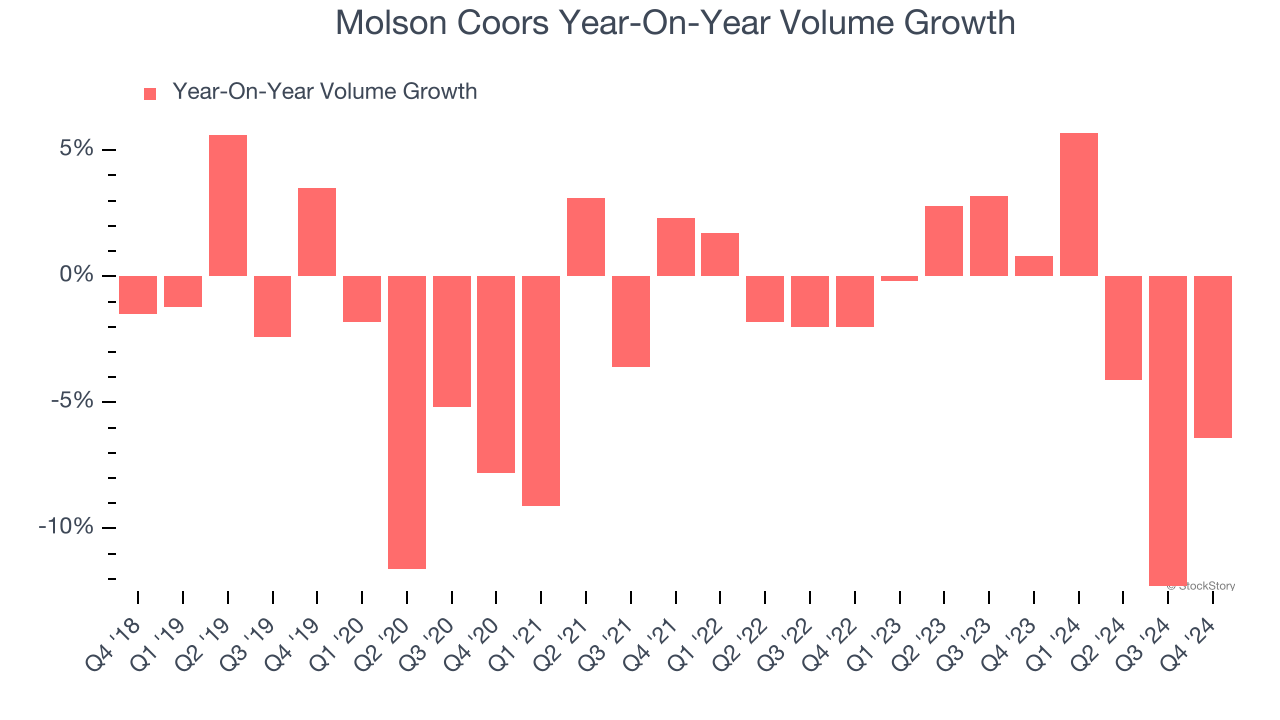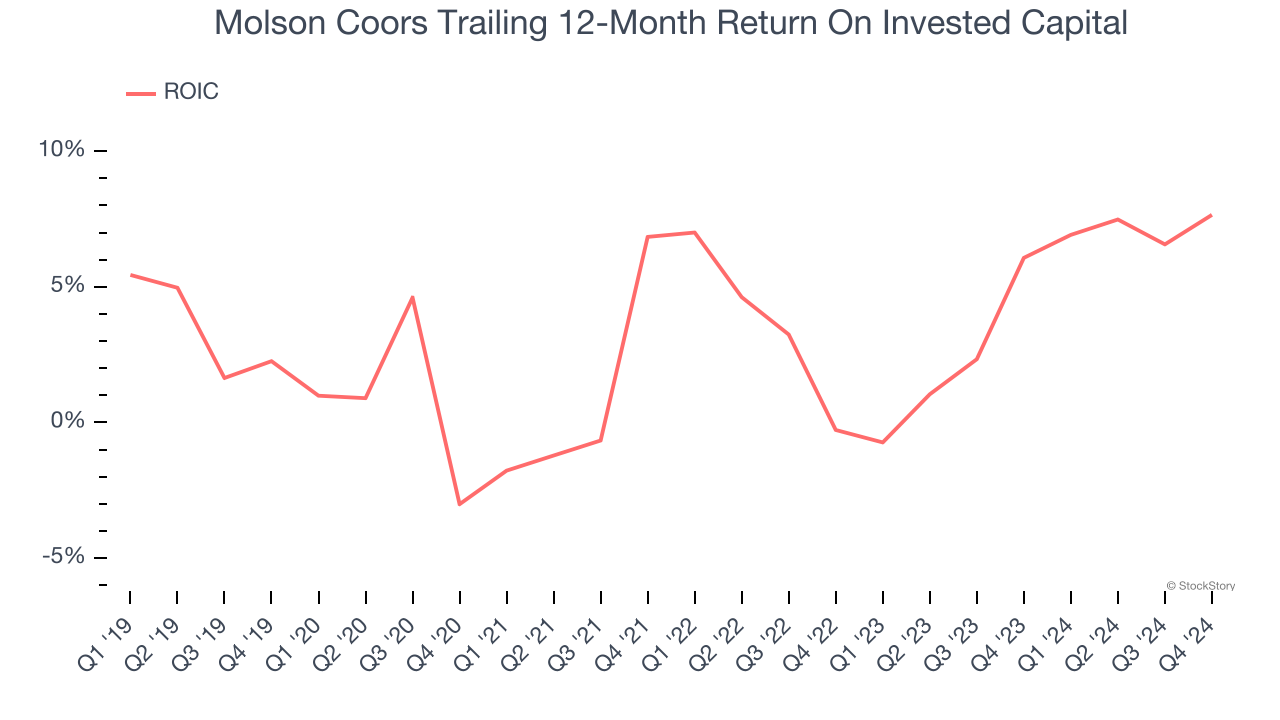
Even during a down period for the markets, Molson Coors has gone against the grain, climbing to $59.34. Its shares have yielded a 6% return over the last six months, beating the S&P 500 by 15.9%. This was partly due to its solid quarterly results, and the run-up might have investors contemplating their next move.
Is now the time to buy Molson Coors, or should you be careful about including it in your portfolio? See what our analysts have to say in our full research report, it’s free.
Despite the momentum, we're cautious about Molson Coors. Here are three reasons why we avoid TAP and a stock we'd rather own.
Why Is Molson Coors Not Exciting?
Sporting an impressive roster of iconic beer brands, Molson Coors (NYSE: TAP) is a global brewing giant with a rich history dating back more than two centuries.
1. Demand Slipping as Sales Volumes Decline
Revenue growth can be broken down into changes in price and volume (the number of units sold). While both are important, volume is the lifeblood of a successful staples business as there’s a ceiling to what consumers will pay for everyday goods; they can always trade down to non-branded products if the branded versions are too expensive.
Molson Coors’s average quarterly sales volumes have shrunk by 1.3% over the last two years. This decrease isn’t ideal because the quantity demanded for consumer staples products is typically stable. 
2. Projected Revenue Growth Shows Limited Upside
Forecasted revenues by Wall Street analysts signal a company’s potential. Predictions may not always be accurate, but accelerating growth typically boosts valuation multiples and stock prices while slowing growth does the opposite.
Over the next 12 months, sell-side analysts expect Molson Coors’s revenue to stall, a deceleration versus its 4.2% annualized growth for the past three years. This projection doesn't excite us and implies its products will face some demand challenges.
3. Previous Growth Initiatives Haven’t Impressed
Growth gives us insight into a company’s long-term potential, but how capital-efficient was that growth? Enter ROIC, a metric showing how much operating profit a company generates relative to the money it has raised (debt and equity).
Molson Coors historically did a mediocre job investing in profitable growth initiatives. Its five-year average ROIC was 3.5%, lower than the typical cost of capital (how much it costs to raise money) for consumer staples companies.

Final Judgment
Molson Coors isn’t a terrible business, but it doesn’t pass our bar. With its shares topping the market in recent months, the stock trades at 9.8× forward price-to-earnings (or $59.34 per share). While this valuation is optically cheap, the potential downside is big given its shaky fundamentals. We're fairly confident there are better stocks to buy right now. We’d recommend looking at the most entrenched endpoint security platform on the market.
Stocks We Like More Than Molson Coors
Market indices reached historic highs following Donald Trump’s presidential victory in November 2024, but the outlook for 2025 is clouded by new trade policies that could impact business confidence and growth.
While this has caused many investors to adopt a "fearful" wait-and-see approach, we’re leaning into our best ideas that can grow regardless of the political or macroeconomic climate. Take advantage of Mr. Market by checking out our Top 6 Stocks for this week. This is a curated list of our High Quality stocks that have generated a market-beating return of 175% over the last five years.
Stocks that made our list in 2019 include now familiar names such as Nvidia (+2,183% between December 2019 and December 2024) as well as under-the-radar businesses like Sterling Infrastructure (+1,096% five-year return). Find your next big winner with StockStory today for free.







